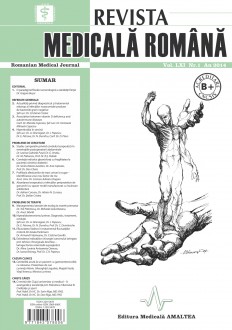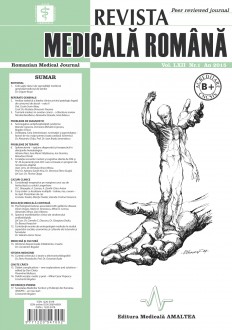SELECT ISSUE

Indexed

| |

|
|
|
| |
|
|
|

|
|
|
|
|
|
|
HIGHLIGHTS
National Awards “Science and Research”
NEW! RMJ has announced the annually National Award for "Science and Research" for the best scientific articles published throughout the year in the official journal.
Read the Recommendations for the Conduct, Reporting, Editing, and Publication of Scholarly work in Medical Journals.
The published medical research literature is a global public good. Medical journal editors have a social responsibility to promote global health by publishing, whenever possible, research that furthers health worldwide.
ASSOCIATION BETWEEN VITAMIN D DEFICIENCY AND AUTOIMMUNE DISEASES
Manole Cojocaru and Inimioara Mihaela Cojocaru
ABSTRACT
Vitamin D is a secosteroid rather than a vitamin. Vitamin D plays a role in the maintenance of immune homeostasis. Low levels of 25-hydroxyvitamin D [25(OH)D] are frequently noted in patients with autoimmune diseases, leading to a current consensus that a deficiency of the secosteroid may contribute to the autoimmune disease process. Low levels of vitamin D in patients with autoimmune disease may be a result rather than a cause of disease. The discovery of the vitamin D receptor (VDR) in the cells of the immune system and the fact that several of these cells produce the vitamin D hormone suggested that it could have immunoregulatory properties. Vitamin D has multiple immunosuppressant properties. Definitive mechanisms by which vitamin D protects against autoimmune disease have yet to be identified. This review describes the importance of vitamin D deficiency in autoimmune diseases.
Keywords: vitamin D, deficiency, pathophysiology, autoimmune diseases

